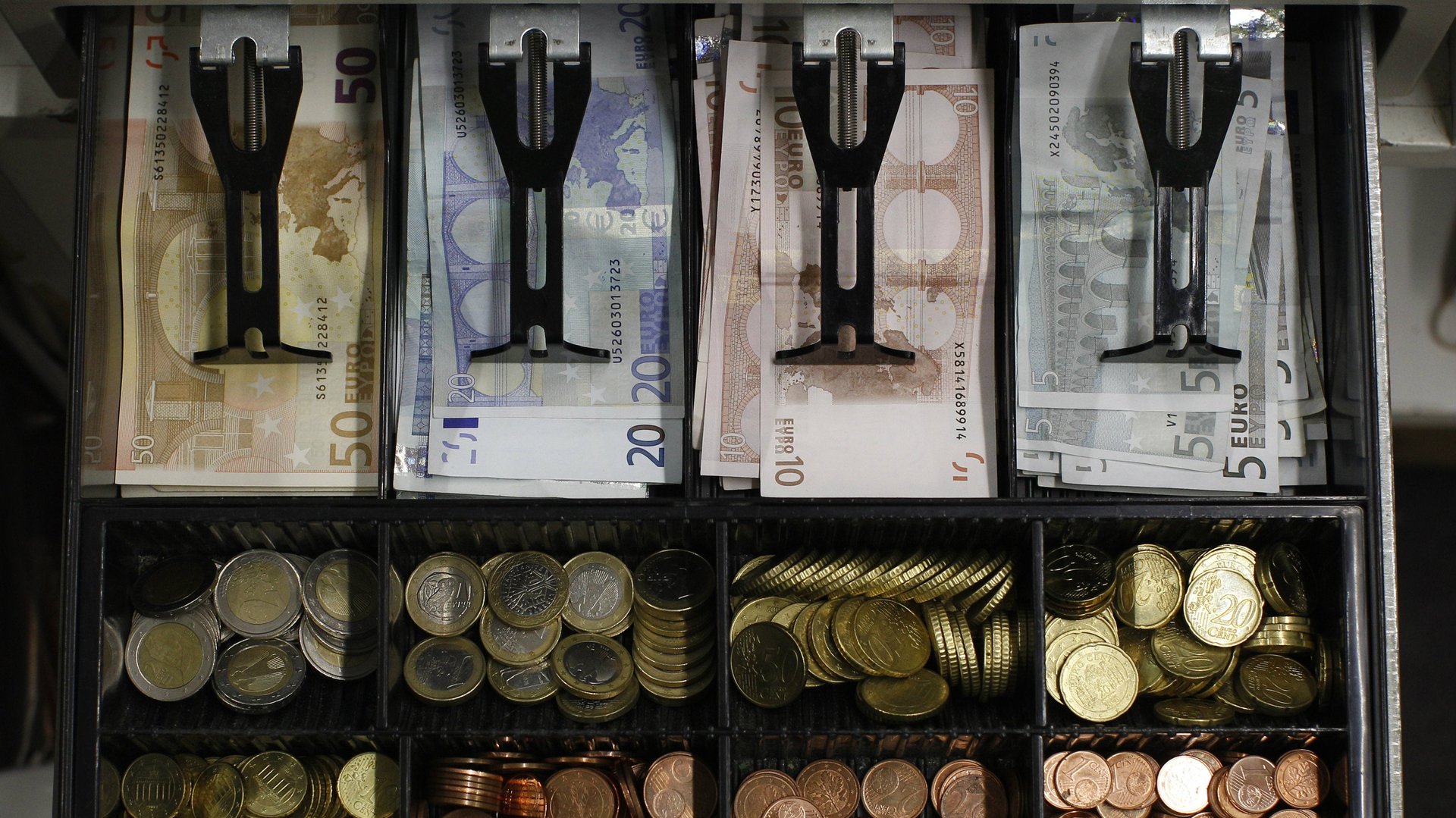Germans buy everything with cash, and the government thinks that’s a problem
Germans really like buying things with cash. They don’t like being told to do it less.


Germans really like buying things with cash. They don’t like being told to do it less.
The German Finance Ministry announced plans ban cash payments of more than €5,000 ($5,600) to tackle the financing of terrorism and money-laundering. The move has been met with fierce opposition. The German tabloid Bild published an open letter (link in German) entitled “Hands Off Our Cash.” The paper encouraged its readers to send a letter to finance minister Wolfgang Schäuble.
Germany has continued to buck the growing trend of card and automated payments. Only 18% of payments in Germany were made with cards in 2013, compared with 59% in the UK. German people’s wallets on average hold nearly twice as much cash as those in the US. While no one is exactly sure why Germans prefer using cash, a survey suggests they like the anonymity it gives them, and carrying cash helps them monitor their spending.
Indeed, Green Party lawmaker Konstantin von Notz described the latest proposal as an attack on privacy. He tweeted: “Cash allows us to remain anonymous during day-to-day transactions. In a constitutional democracy, that is a freedom that has to be defended.”
That’s in contrast to other countries in Europe. Sweden is on its way to becoming the world’s first cash-free society, according to a recent study. In Denmark, the government considered allowing retailers, restaurants, and gas stations the option to stop accepting cash payments all together. And you can no longer buy bus tickets with cash in London.
It remains unclear whether the German finance ministry will successfully push through the unpopular proposal, or try to find a European-wide solution instead. Currently, there are limits to cash transactions in a number of European countries, including France (€1,000), Spain (€2,500), and Italy (€2,999.99).